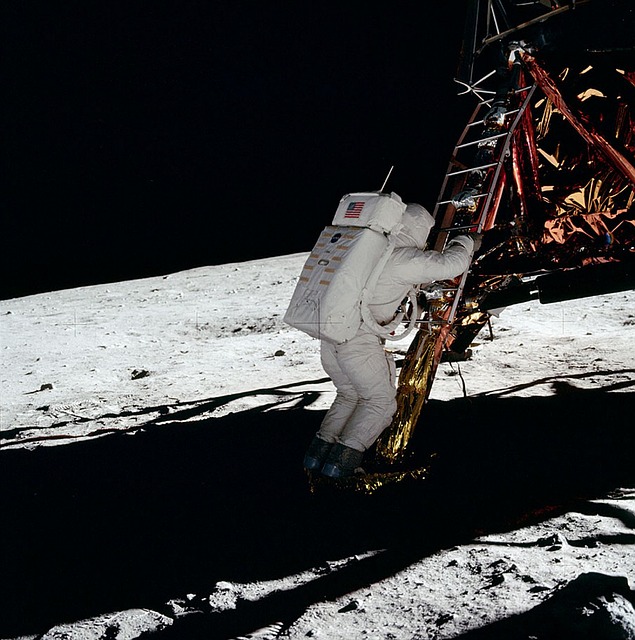
July 16, 1969, marked the beginning of an extraordinary adventure as the American Apollo 11 mission embarked on its journey towards the Moon, carrying the dreams and hopes of an entire planet.
It was a hot and sunny day, filled with anticipation and excitement, as the Saturn V rocket stood proudly on the launch pad at Cape Canaveral, Florida. Thousands of spectators gathered to witness this historic event, fully aware that this day would mark a turning point in the history of humanity.
Commanded by the mission's commander, Neil Armstrong, a calm and determined man, Apollo 11's ultimate objective was to set foot on the lunar surface. Accompanied by astronauts Buzz Aldrin and Michael Collins, Armstrong was ready to embark on a perilous and audacious adventure, with an uncertain outcome.
As the rocket ascended into the sky, the tension was palpable. The entire world held its breath, with eyes glued to television screens and radios broadcasting the events live. The thoughts and prayers of millions of people were focused on the three astronauts, who had become heroes of a generation.
Yet, this mission was not just a technological feat; it was also the result of decades of dedication, research, and sacrifice. Since the launch of the American space program in response to President John F. Kennedy's challenge in 1961, thousands of scientists, engineers, and technicians had worked tirelessly to make this journey possible.
And on July 20, after a four-day journey through space, the lunar module Eagle detached from the main capsule, leaving Armstrong and Aldrin alone in their descent to the lunar surface. Hearts raced in the mission control center as Armstrong's legendary words echoed through the speakers: "That's one small step for man, one giant leap for mankind."
This historic first step on the Moon was the culmination of a daring enterprise, but it also marked the beginning of a new era for space exploration and for humanity as a whole. The scientific discoveries and technological advancements achieved during the Apollo missions paved the way for new perspectives and new frontiers to conquer.
Fifty-four years later, the departure of the Apollo 11 mission continues to inspire and awe. The footprints left by the astronauts on the lunar surface symbolize the human capacity to surpass ourselves, to push the boundaries of exploration, and to achieve seemingly impossible dreams.
Today, as we look towards the future, the lessons of the Apollo 11 mission still resonate. They remind us of the importance of international cooperation, audacity, and ingenuity in accomplishing great feats. And they also remind us that space exploration is more than just a scientific adventure; it is an endeavor that nourishes our curiosity, broadens our horizons, and prompts us to question our place in the universe.
Thus, on July 16, 1969, as the Apollo 11 mission took off towards the Moon, humanity found itself at a crossroads. A new era of discovery and exploration was about to begin, with the promise of wonders and unknown challenges. This day will forever be etched in the annals of history as a symbol of courage, audacity, and faith in the future.
WikiImages, Pixabay, https://pixabay.com/photos/astronaut-spaceman-spacesuit-11118/


0 comments: